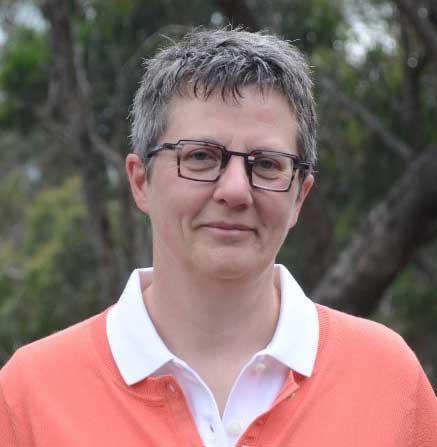
Micro-credential scheme on evaluation
Welcome to the UNSSC-WFP Micro-Credential Scheme on Evaluation—an innovative programme designed to elevate the skills of evaluation professionals within the World Food Programme(WFP) and the United Nations (UN) system. This scheme aims to enhance the credibility and effectiveness of WFP's evaluation function, reinforcing its vital role in the journey towards achieving zero hunger. By fostering a stronger evaluation culture and promoting the consistent generation and use of high-quality evaluation evidence, the scheme supports informed policy, programme, and strategy development across the organization.
About the Programme
In 2022, the United Nations System Staff College (UNSSC) and the Office of Evaluation of the WFP joined forces to design and develop a micro-credential scheme tailored for WFP’s evaluation community. In alignment with the United Nations Evaluation Competency Framework, each micro-credential builds and validates the specific skills needed to manage evaluations effectively. The scheme enhances capabilities across the organization for quality evaluation management through a flexible and targeted approach that responds to the current and future needs of staff with varying levels of experience in evaluation.

Micro-credentials certify learning outcomes in a narrow field of learning achieved over a short period of time. Micro-credentials allow learners with different backgrounds and levels of experiences to build a flexible learning path. They include external assessment based on clearly defined standards.
The scheme, includes a combination of theoretical and applied modalities for learning, specifically,
- an online training component (synchronous and asynchronous)
- on the job experience and
- coaching or mentoring sessions.
Each micro-credential is equivalent to approx. 25 hours of notional workload, to be completed within a timeframe of 4 months.
This micro-credential has been designed for evaluation managers at WFP interested in strengthening their knowledge of theories of change and how to effectively integrate the use of theories of change into their relevant job functions.
Learning objectives:
- Describe what theories of change (ToC) are and how they are used within intervention design, implementation, and evaluation.
- Iteratively construct and/or reconstruct a ToC, incorporating relevant theory, research, and/or stakeholder input.
- Review a ToC to ensure it remains relevant and explicitly outlines the expected changes and assumptions along the causal pathways.
To register visit this page.
This micro-credential has been designed for evaluation managers at WFP interested in exploring where using a theory-based approach (TBA) to evaluation is most useful and relevant to answer key evaluation questions.
Learning objectives:
Define a theory-based approach in evaluation
- Develop evaluation questions (or sub-questions in case of CSPEs) and testable hypotheses which are specific to the context and the intervention
- Verify that the evaluation design will allow the testing of hypotheses to assess whether and how an intervention contributed to results
- Review a draft evaluation report to determine if the theory-based evaluation design was used consistently and appropriately.
To register visit this page
This micro-credential has been designed for evaluation managers at WFP interested in utilizing evaluability assessment to recognize potential evaluation opportunities and challenges, as well as assessing the use of EA for informing evaluation design.
Learning objectives:
- Define EA, its purposes and uses
- Use EA to identify potential evaluation opportunities and challenges.
- Assess the use of EA for informing an evaluation design, including strategies that support evaluation quality and use.
To register visit this page
This micro-credential has been designed for evaluation managers at WFP interested in consolidating their skills to plan and prepare for an evaluation of moderate complexity.
Learning objectives:
- Articulate how to leverage governance mechanisms to maximize utility and inclusion, adhering to quality standards in the evaluation process.
- Understand the evaluand, identify the users, and determine how the evaluation will be used, considering existing evidence and context.
- Develop relevant, clear, and focused evaluation questions that consider gender equality, broader inclusion, context, time, and available resources.
- Differentiate between various evaluation designs and approaches, identifying appropriate ones for a given evaluation.
- Develop a realistic evaluation work plan, including timelines and budgets for moderately complex evaluations, anticipating potential challenges.
Stay tuned for the 2025 edition. You can read the study plan of the previous edition.

Our learning approach combines different modalities to ensure a comprehensive, hands-on experience:
Training (50%): Engage in online training, that includes synchronous (webinars, online forums) and asynchronous materials to gain foundational knowledge.
On-the-job experience (30%): Directly apply what you learn with real- tasks that build practical expertise.
Coaching or mentoring (20%): Benefit from guidance by experts who can help you deepen your skills and troubleshoot challenges.
This blend of theory, practice, and mentorship offers a robust learning experience, designed to be flexible yet impactful.
Digital Badge
Upon completing a micro-credential, you’ll receive a digital badge that follows open badge standards. These badges serve as verified proof of your achievement and can be displayed online or shared on professional platforms. Each badge contains metadata that provides details on the credential’s criteria, issuing organization, and context.
To review the eligibility requirements for joining the micro-credentials, please visit the respective dedicated pages.
- Christina Cuonz (former), Director of the Centre for Continuing Education at the University of Bern
- Stewart Donaldson, Distinguished University Professor and Executive Director of the Claremont Evaluation Center (CEC) and The Evaluators’ Institute (TEI) at Claremont Graduate University
- Candice Morkel, Head of Programme: IPDET Centre for Continuing Education University of Bern, Switzerland
For more information about the micro-credential scheme please contact us:
Itziar Arispe, Evaluation Learning Specialist, UNSSC Knowledge Centre for Leadership and Management, and Mona Selim, Evaluation Officer, WFP Office of Evaluation elp@unssc.org


